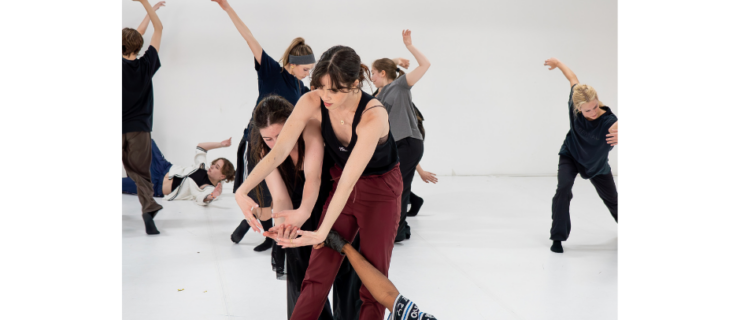The Sophomore Slump Can Hit Dancers Hard—Here's How to Beat It
You did it: You landed the job, a spot at the pre-professional school of your dreams or at the best-of-the-best university dance program. And that first year was hard, and exhilarating. But since then, the shiny new has worn off, and the patina of the everyday has left you in a rut.
The sophomore slump hits hard. Whether it is literally your sophomore year or you have just become a mainstay within your company or school, the funk can be difficult to shake. “The ‘sophomore year’ is really the test of your passion for dance,” says Brian T. Goonan, a psychologist who works with dancers in Houston. But with the right mind-set, you can find your groove again.
Why It Happens
If you find yourself constantly focusing on the things you don’t have, while overlooking your accomplishments, you may be slipping into a rut. Goonan compares the journey to a road trip: “At first you’re really excited,” he says. “You’re 100 miles down, then you’re 200 miles down. And then at some point you lose momentum and start looking at what is left rather than what you have accomplished.” He points out that it can be frustrating to find yourself right where you want to be—in a company or program you have sought—but feeling stagnant. “It is a motivational hole,” he says.
Adam Sklute, artistic director at Ballet West, says he sees clear stages in company members. Initially dancers are just grateful to be there, but over time the excitement wears off. “After a certain point the mind-set changes,” he says, “and I’m talking about the most committed artists. They are working hard and doing the best they can, but they may not be seeing the growth in terms of promotions or roles that they feel they deserve.”

Beau Pearson, Courtesy Ballet West
Garfield Lemonius, chair of the dance department at Point Park University Conservatory of Performing Arts, points out that this phase is a natural part of the developmental process. “We want to give dancers all the tools to succeed, but we also have to allow them to develop their own strength and the wherewithal to transcend all of these challenges that they face,” he says. “It gets lonelier as you get older. You have to be more independent to be successful. It is part of the education.”
You may feel invisible, but it doesn’t mean you are doing something wrong. “Sophomores are in a situation where they are no longer the main topic of conversation,” says Lemonius. “Teachers are focusing on freshmen because we want to see what they can do, but also because they need help adjusting. And then the focus is on the seniors because they are about to go out into the professional world, and we want them to look good as they embark.”

John Altdorfer, Courtesy Lemonius
Overcoming the Funk
With a proactive attitude, you can get out of the slump and back on track:
1. Set productive goals.
Focus on what you put in, not what you get out. “You have to fall in love with the quest for perfect knowing that you will never really get there,” Goonan says. Your goals should be centered on things you can control: committing to Pilates once a week to strengthen your core, or applying a correction you receive frequently.
2. Ask to sit in on rehearsals.
The sophomore slump can arise simply because you aren’t feeling inspired by the work you are doing. If there are dances you want to learn, Sklute suggests asking to come to rehearsals. “I would never be upset with a dancer for doing that,” he says. “That kind of gumption is actually inspiring to me.” Look for additional motivation by watching performances of another genre of dance, or taking class in a style that you aren’t as familiar with.
3. Expand your horizons.
You may need to get a hobby. Goonan points out that for many, dancing begins as a joyful escape. “But now that dance is your work, you need to find a way to replace that outlet that you have lost,” he says. Take a cooking class, keep a journal or join a club.
4. Don’t forget your value.
Sklute says the final phase of emotional development he sees in company members is the realization that they are wanted in the roles they are in. “Dancers should know that if they are in a company for 4, 5, 6, 10 or more years, even if they are just in the corps de ballet, they are valued,” he says.

Getty Images
What If It’s Not Just a Slump?
It can be hard to tell if you’re in a slump or just at the wrong company or school. Ask yourself why you’re unhappy: Are you receiving constructive feedback from teachers and directors? Are you frustrated because you aren’t seeing the outcomes that you want, or because you are being treated poorly?
Sklute encourages dancers not to throw in the towel simply because they aren’t advancing the way they had imagined. “Be patient,” he says. “Remember that seniority is often very important and there are likely others ahead of you who are also working to advance. But don’t compare yourself to others. We all develop at different times.”




